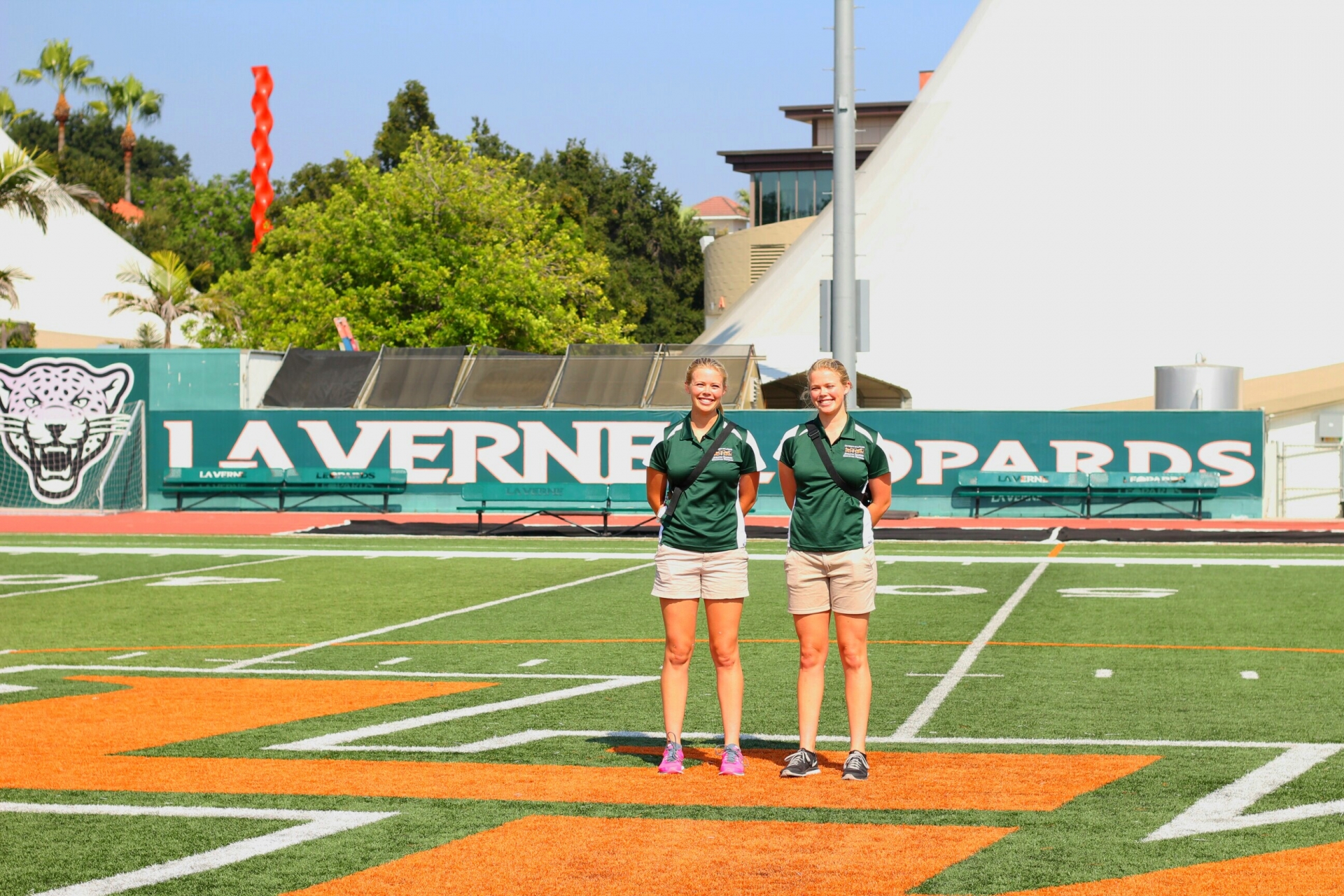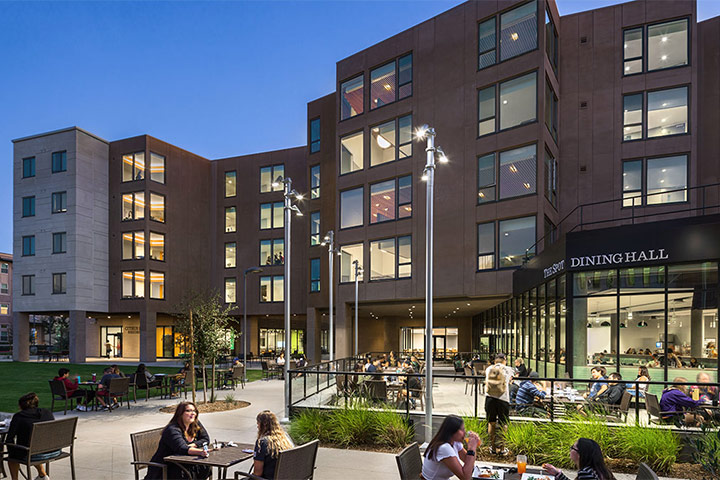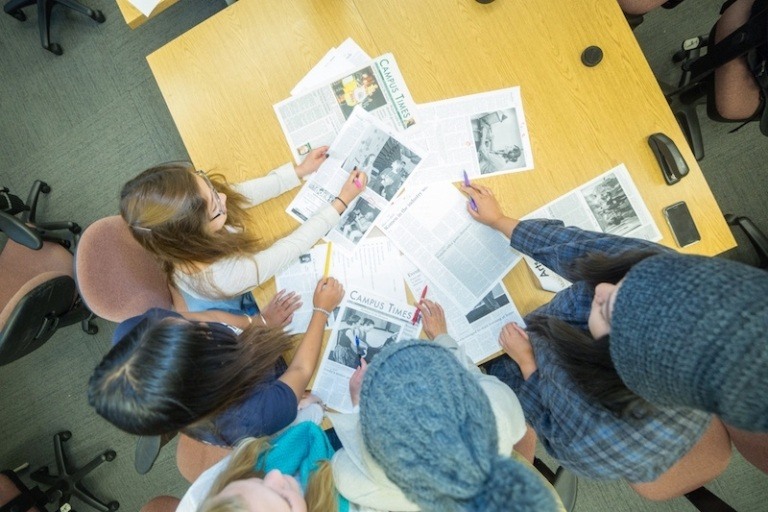Twin Athletic Trainers a Tour de Force

The gamble paid off.
University of La Verne sisters Hope and Nysa Allen, along with alumna Anastacia Fraijo, found themselves in ninth place out of 18 teams at an athletic trainer’s competition in April. The team decided to place all its accumulated points on the final question of the Jeopardy-style match.
The question was “What is the most common fracture that occurs at the C-1 vertebrae?”
“It’s called a burst fracture,” said Nysa Allen. “Only two teams got the answer right out of the 18.”
La Verne, one of the correct teams, risked more points and suddenly found itself the winner of the Far West Athletic Trainers’ Association Quiz Bowl, taking a trophy home from San Diego.
It is a highlight of what has been a successful college journey for the Allen sisters, who are both athletic training students and graduating in the spring. They are also twins.
Following their win in San Diego, their team represented NATA’s District 8 at the NATA Clinic Symposium and AT Expo in St. Louis in June, placing fourth among 10 teams in that competition. They are set to participate in another NATA competition in Baltimore in 2016.
Their success generated national attention in October when NATA’s monthly magazine featured the twins in their Athletic Trainers Spotlight.
“It’s kind of overwhelming, getting all these awards and scholarships and national recognition,” Hope Allen said. “I don’t know how to respond to all of it.”
Professor of Kinesiology and Director of the Athletic Training Program Paul Alvarez praised both students for their achievements.
“Hope and Nysa represent the best of our Athletic Training Program students – hard-working, dedicated, and service-oriented not only to their patients and preceptors, but also to their fellow students with whom they share their successes,” he said.
The Allen sisters say they became interested in athletic training while playing women’s volleyball. Natives of Oahu, Hawaii, the sisters competed on high school and college teams. Witnessing their teammates’ injuries sparked their curiosity about how to heal them.
“I was intrigued by the idea of helping my teammates get back on the court,” Nysa Allen said.
For Hope Allen, the idea of going beyond physical injuries also captured her interest. Often the injuries that keep athletes out of the game come with emotional distress, and being a source of emotional and physical comfort is what makes the field appealing, she said.
“I like that athletic training is about taking care of the whole well being of the athlete,” she said.
And gaining trust is also a skill that athletic trainers must learn in order to properly heal their athletes.
“The more trust that you instill with your athletes, the more likely they’re going to tell you what’s going on and not hide information,” Nysa Allen said
Both have already faced challenges while learning their trade.
Hope Allen, who works as an athletic trainer for Leopards football, says the stakes are high given the team is performing well this season and players sitting out due to injuries could jeopardize that. That means treating injured athletes during the week and, when necessary, recommending modified practices for them so that they heal in time for weekend games.
“We just need to keep them on the field,” Hope Allen said. “We need them to win the conference championships in two weeks.”
Nysa Allen is assigned as an athletic trainer for Mt. San Antonio College’s football program. She encountered one athlete recently who sustained injuries to his shoulders, a knee and an ankle during one game. He was also recovering from a concussion. While athletes sometimes hold back the pain they are experiencing due to fear of being taken out of games, the trust Nysa Allen had gained caused the injured player to be forthcoming.
“I have a really good relationship with this athlete,” she said.
The Allens are applying for the top graduate schools for their field in the country. They are unsure if they will be going to the same school.
“If we both get accepted to the same school and it’s the school we both want, then yes,” Nysa Allen said.
Hope Allen says her dream job would be working as a head athletic trainer at a college or university, but she is not leaning toward one particular sport. Nysa Allen sees herself working internationally as an athletic trainer, possibly in professional baseball. She plans to apply for an internship with Major League Baseball for the summer.
Both credit La Verne’s faculty and staff with their success.
“It’s a huge thanks to La Verne for being able to provide this for us,” Hope Allen said.


